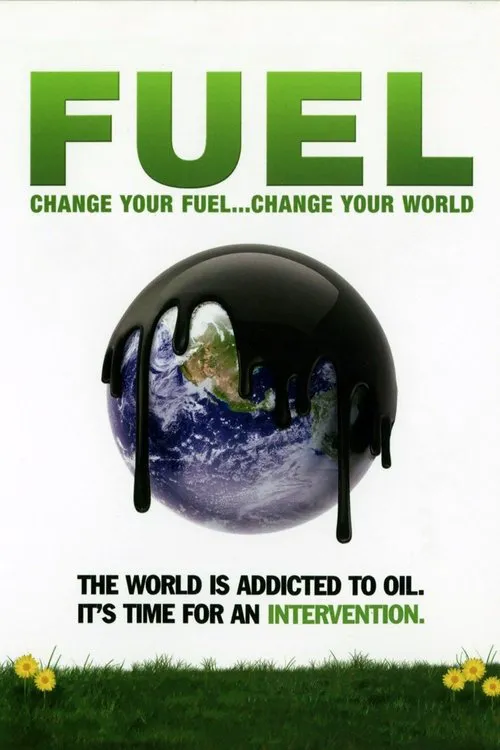Fuel

Plot
Fuel is an eye-opening documentary that delves into the intricate web of relationships between the automotive, oil, and governmental sectors. Released in 2009, directed by Josh Tickell, Fuel provides a thought-provoking examination of our energy landscape, shedding light on pressing global issues, such as record-high oil prices, the impact of global warming, and an unsustainable demand for energy. The documentary sets its foundation by highlighting the pivotal role that automobiles play in exacerbating the global energy crisis. It reveals that the production of vehicles is not only highly energy-intensive but also contributes significantly to greenhouse gas emissions. According to the U.S. Energy Information Administration, the transportation sector is the largest source of greenhouse gas emissions, accounting for about 28% of the country's total emissions. Fuel then explores the close ties between the auto industry, the oil industry, and the government. The film suggests that these sectors have long worked in tandem, driven by a common interest in maintaining the status quo and the widespread use of fossil fuels. Lobbying efforts and government subsidies have allowed these industries to perpetuate their dominance over the energy market, stifling innovation and alternative energy sources. One of the primary drivers of this status quo is Big Oil. Major oil companies such as ExxonMobil, Chevron, and BP have wielded immense power over the global energy landscape. Fuel suggests that these corporations have worked tirelessly to suppress the development and marketing of alternative energy sources, such as solar and wind power. This has resulted in a significant delay in transitioning to more environmentally friendly energy sources. The film also examines the critical role of government subsidies in perpetuating the reliance on fossil fuels. It highlights that the U.S. government has invested heavily in subsidies for the oil and auto industries, creating an uneven playing field for alternative energy sources. These subsidies, which have totaled hundreds of billions of dollars, have allowed these industries to maintain their grip on the energy market. In contrast, the film asserts that alternative energy sources, such as solar and wind power, have been largely left to fend for themselves with minimal government support. However, Fuel also celebrates the innovations and pioneers working towards a more sustainable future. The documentary showcases entrepreneurs, scientists, and activists who are pushing the boundaries of alternative energy and challenging the dominance of fossil fuels. From the development of non-food-based biofuels to innovative designs for electric and hybrid vehicles, the film highlights the exciting possibilities unfolding in the world of sustainable energy. One such pioneer is Josh Tickell's own initiative to develop and produce a bio-based fuel additive that can make up to 95% of gasoline. Tickell's research has led to the development of a more efficient and environmentally friendly fuel additive, which is showcased in the film as an example of the potential of innovation in the energy sector. Fuel concludes by painting a vision of a future powered by renewable energy sources. The film envisions a world where electric and hydrogen fuel-cell vehicles dominate the roads, and our reliance on fossil fuels has begun to wane. This vision is not only a desirable outcome but also a necessary one, given the catastrophic environmental consequences of our current energy landscape. In the end, Fuel provides a scathing critique of our current energy landscape, highlighting the intricate web of relationships between the auto, oil, and governmental sectors. By shedding light on these connections, the documentary exposes the urgent need for a transformation to sustainable energy sources.
Ulasan


